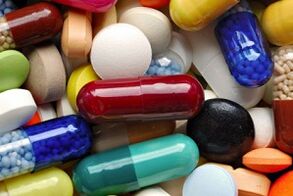Inflammatory processes in the prostate are typical for men of mature age from 40. The pathology is caused by various hormonal disorders, viruses or bacteria, weak immune defenses, genitourinary and venereal diseases, prolonged absence of sex. Treatment usually does not cause any problems, as the pharmaceutical market offers many modern drugs that effectively fight prostatitis. Only a qualified urologist should decide which prostatitis drug should be taken by a particular patient.

Forms of drugs for prostatitis
The drugs prescribed to treat prostatitis are available in the form of tablets, suppositories, instillations, injections, or microclysms. Tablet preparations are usually represented by antibiotics with a fairly wide spectrum of action, which are prescribed in cases when the causative agent of the pathology has not yet been identified. In general, antibiotics are represented by three groups of drugs:
- Fluoroquinols.
- Penicillins.
- Tetracyclines.
Often in the treatment of prostatitis, suppositories are used, which are used rectally (they are inserted into the anus). Such drugs are effective in relieving pain and having an antibacterial effect. The greatest penetration into the tissues of the body is characterized by injection solutions. They work systemically, stimulate the immune system and the vascular system.
According to experts, the maximum therapeutic effectiveness is achieved with the rectal administration method, so it is preferable to other methods of treating prostatitis.
It is not uncommon for prostatitis treatment to include instillation procedures, in which the drug is injected directly into the urethral canal into the patient. A man must empty his bladder before giving the solution. One procedure does not inject more than 5 ml of solution. The main therapy can be supplemented by folk remedies such as microclysters, in which the cure for prostatitis is presented in the form of herbal decoctions or infusions. The micro-inlet technology is based on a complex temperature-medical effect. Such treatment must be carried out at bedtime, since after microclysms, hypothermia or overloading of the prostate is unacceptable.
Pharmacological groups of drugs for prostatitis

Treatment of prostatitis is always complex, including the use of drugs of various pharmacological groups: antibiotics, pain relievers, α-blockers, muscle relaxants and drugs containing hormones, antiviral and anti-inflammatory drugs, as well as phytotherapeutic agents, etc. With prostatitis of bacterial etiology, antibiotics are the basis of therapy. Tableted antibiotic treatment is usually prescribed for chronic and acute bacterial prostatitis and lasts about a month. With complications of prostatitis, treatment is carried out by injecting the drug. If the causative agent of the infection cannot be identified, combined antibiotic therapy is carried out.
Anesthetics significantly facilitate the course of prostatitis, but should be drunk as directed, since the uncontrolled use of analgesics can provoke the appearance of very undesirable side effects. The use of α-blockers is due to the relaxing effects of these drugs on the muscles and bladder neck, which significantly reduces the pain associated with urination. But these drugs cause side effects like hypotension or headaches. Similar drugs are prescribed for chronic prostatitis of non-bacterial etiology.
Often times, the body of a man with prostatitis needs to restore and strengthen immune defenses, which is aided by drugs from the group of immunomodulators, which include interferons and other drugs.
Used to treat prostatitis and muscle relaxants that reduce the tone of muscles in the perineum. The use of such drugs is due to the fact that the tension in these muscles causes a feeling of discomfort and pain. The use of drugs containing hormones in treatment is due to the need to lower testosterone levels, which provokes prostate proliferation. Due to hormonal therapy, the intensity of the inflammatory process decreases, and the hormonal background normalizes. Sometimes, as an additional treatment for prostatitis, herbal supplements are used to remove swelling, inflammation, and pain. Herbal remedies are widely used in the treatment of chronic forms of prostate inflammation.
With prostatitis of viral etiology, the use of antivirals is indicated. Therapy is often complemented by nonsteroidal anti-inflammatory drugs. The action of such drugs is aimed at getting rid of pain and swelling, high temperatures and accompanying inflammatory processes in the prostate. Suppositories that contain anti-inflammatory nonsteroidal substances are particularly effective. Drug therapy often involves the use of drugs that improve blood flow to the prostate.
There are many effective means of treating inflammation in the prostate, but they cannot be prescribed independently, even if there are no contraindications.


























